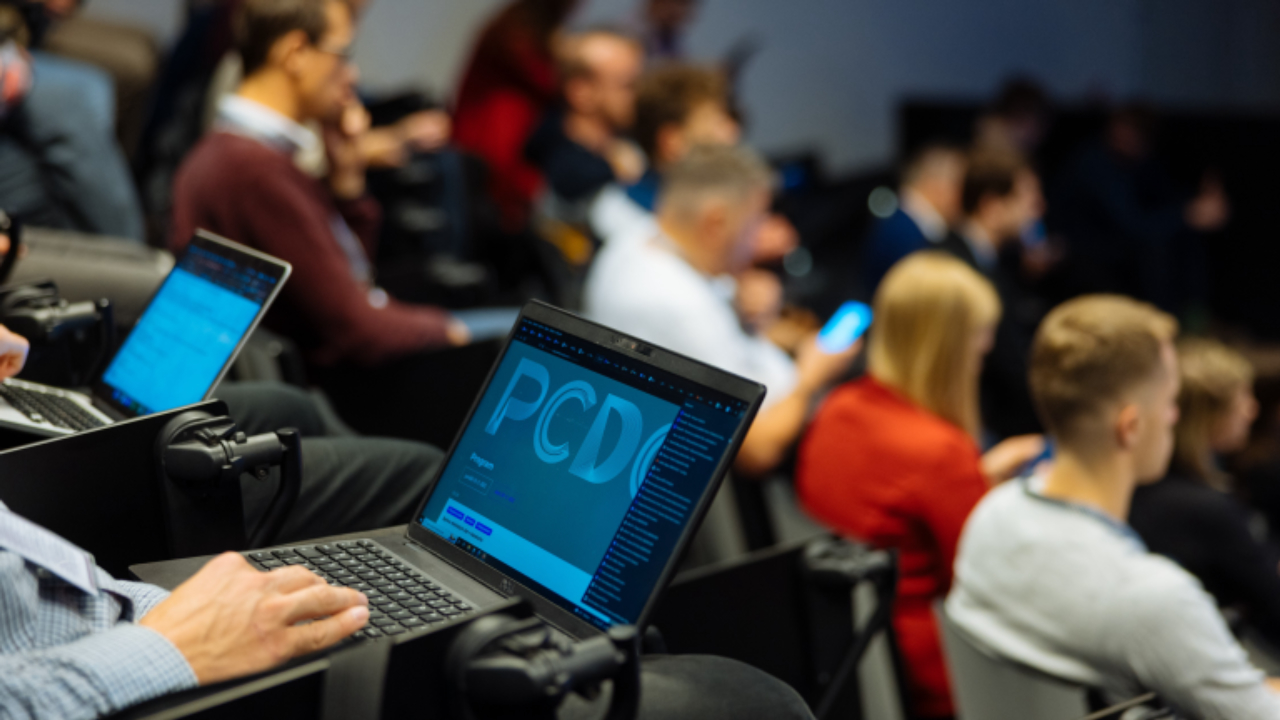
The fourth edition of the international conference Prague City Data Congress (PCDC), which took place on September 19 and 20, focused on climate change and presented a number of intelligent solutions that use data in climate protection projects, using examples from the fields of transport and public space.
On Tuesday, in addition to lectures and moderated debates, there was also a ride on Rekola (bikesharing) to see interesting projects that have been implemented and a journey "into the future" to see what is being planned in Prague. Visitors to the conference appreciated its interactive concept and the many inspiring ideas shared with them by Czech and international experts. A selection from Tuesday's programme is available for viewing from the recording. It opened with Laura Buettner's presentation on urban data management in Hamburg, where one of the themes was the importance of identifying key challenges in urban data management by working with different stakeholders and specific use cases to improve the ability to search and analyse data for different sectors, such as mobility or monitoring the implementation of sustainable development goals in the city. Martin Dvořák followed this up by introducing the Brno data platform data.Brno, whose work over the last year has focused more on data that has the potential for re-use and seeks to reflect the needs of the public related to the current energy and climate crisis, with the aim of contributing to solving these crises and helping to improve the lives of local residents. Miroslav Lupač presented the case study "Klimasken as a data tool for a comprehensive assessment of climate adaptation in European cities" to report on the testing phase of a project aimed at a comprehensive assessment of the territory and buildings in the context of climate change for the capital city of Prague, whose resulting "label" is part of the city's climate plan, and then discussed with the audience the specific urban data needed for such a comprehensive analysis. Jiří Čtyroký continued with a case study from Prague, "Data in Microclimatic Planning of Bubny", which was the first in Prague to model large-scale simulation of temperature, humidity and air flow under heat wave conditions in a newly proposed development according to the Bubny Urban Study, and stated that the model outputs provided welcome feedback for designers and its use in other locations in Prague is expected. During the discussion, which followed the presentation of the project on mobility and data of mobile operators in Prague, Jiří Čtyroký discussed with the attendees the data, trends and validity of this project, as well as its results, which are highly interesting both from the methodological point of view and from the point of view of the monitoring results themselves, including a unique reflection on the impact of the effects of emergency situations (especially those related to behavioural changes due to COVID-19). During the panel discussion on the case study "Responsible Sensing Lab: Designing Smart City based on European Values", Thijs Turel explained his way of working, showed recent examples, successes and limitations and took the audience through an interactive part in which he applies Value Sensitive Design in public space. At the end of the two-day PCDC conference, in his presentation "A European perspective on data solutions in mobility and public space" Alanus von Radecki took the audience through concrete examples from his practice, such as the potential of cities to reduce emissions in mobility and public space, how cities can innovate and prepare for the future, or how he perceives the new European approach to open-source technologies and community-driven portfolio of digital solutions.
Photo by FotoMaly.cz